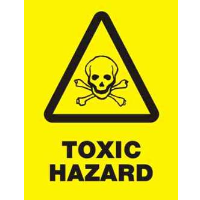90 Years Is Enough: State Inks Deal to Close Exide’s Toxic Battery Plant near Downtown L.A.

In hindsight, how could the state have gotten rid of a giant toxic battery recycling plant five miles south of downtown Los Angeles in less than nine decades?
Lawmakers will wrestle with that question and more now that the U.S. Attorney’s Office has reached an agreement with Exide Technologies to permanently close its plant in the city of Vernon Exide, which employs 10,000 people worldwide and is currently in bankruptcy, is battling various state government agencies over its polluting ways and has been temporarily closed since early last year.
When the 15-acre plant was fully operational, it recycled lead-bearing scrap materials and 23,000 to 41,000 automotive batteries daily as a cheap source of lead for its battery-making facilities. It was also a costly source of arsenic and lead emissions.
Exide will pay $38.6 million to close and clean up the plant. Another $9 million will go into a trust fund to clean up the mess they made of the neighborhood, including 216 homes. Additional monies will be spent on blood tests for nearby residents.
The Los Angeles Times quoted state Senate leader Kevin de Leon’s (D-Los Angeles) vow that “those who let this happen must be held accountable.” He was not talking about Exide or its officials.
The federal government agreed not to pursue prosecution for criminal conduct, although the company admitted to, “including the illegal storage, illegal disposal, illegal shipment and illegal transportation of hazardous waste. For example, in the NPA ‘Exide admits that it knowingly and willfully caused the shipment of hazardous waste contaminated with lead and corrosive acid in leaking van trailers’ ” to Bakersfield. The incidents dated back two decades.
Neighbors of the plant complained about being ill for years and the company was regularly in trouble with regulators but kept on polluting until a South Coast Air Quality Management District (AQMD) report in 2013 said 110,000 people were at higher risk of cancer because of the plant's arsenic emissions.
Senator de Leon was warning public agencies that they would be held accountable for the system and performance that allowed the Exide situation to continue years after the danger was apparent. Exide operated with a temporary permit for 30 years, taking advantage of a permitting system that the state Department of Toxic Substances Control (DTSC) admits (pdf) is regarded with “significant dissatisfaction.”
The plant managed to stay open despite dozens of hazardous waste violations. But, according to federal officials, bankruptcy was about to do what government couldn’t, and it wouldn’t be pretty. Exide is trying to emerge from bankruptcy, and officials told prosecutors that the threat of criminal charges would spook all the participants and the company would have to liquidate. That probably wouldn’t leave much, if anything, for cleanup costs.
If Exide fails to abide by the terms of the agreement, it could be prosecuted over the next 10 years for the offenses it has already acknowledged.
–Ken Broder
To Learn More:
Vernon-Based Exide Technologies to Shut Down Permanently Under Deal with US Attorney (by Molly Peterson and Adrian Florido, KPCC)
With Exide Plant's Closure Official, Lawmakers Target State Regulators (by Chris Megerian, Los Angeles Times)
Bankrupt Exide Fields New Pollution Lawsuit amid Shareholder Shafting (by Ken Broder, AllGov California)
Exide Technologies Admits Role in Major Hazardous Waste Case and Agrees to Permanently Close Battery Recycling Facility in Vernon (U.S. Attorney’s Office Central District of California)
- Top Stories
- Controversies
- Where is the Money Going?
- California and the Nation
- Appointments and Resignations
- Unusual News
- Latest News
- California Forbids U.S. Immigration Agents from Pretending to be Police
- California Lawmakers Urged to Strip “Self-Dealing” Tax Board of Its Duties
- Big Oil’s Grip on California
- Santa Cruz Police See Homeland Security Betrayal in Use of Gang Roundup as Cover for Immigration Raid
- Oil Companies Face Deadline to Stop Polluting California Groundwater





